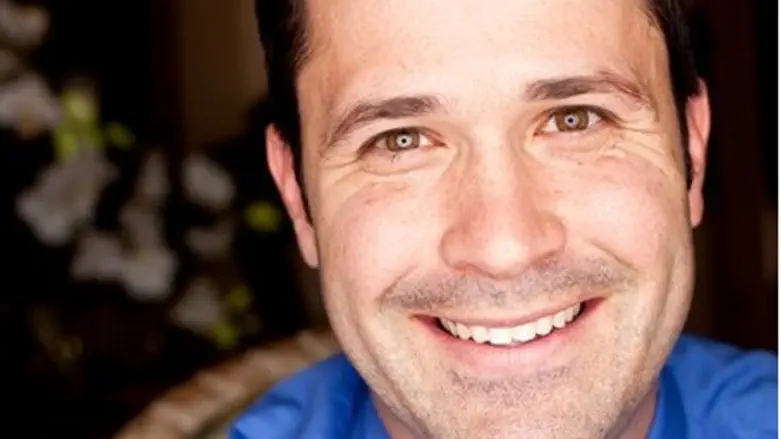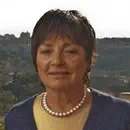
What's it like to be number 14 on a list that polls show wavering up and down around the numbers 13-16 Knesset seats? Jeremy Gimpel, the only Anglo immigrant in a realistic spot on any party list (Bennett, although son of immigrants from the US, was born in Israel) , needs just that extra push of voters to have an American Oleh ( Hebrew for immigrant) – just one – serve Israel as an MK in the next four years, he says.
Gimpel has a lot to say about the issues facing Israel in this Arutz Sheva interview.
But elections are "serious business", it seems, and one can't even crack a joke without being attacked by one's political adversaries. Jeremy Gimpel found himself under fire and there was even an attempt by an MK in Livni's party to disqualify him, all for an innocent joke he made to a group of Christian tourists.
"They haven't faced my ideology and opinions, in a head-on and straightforward debate on the issues", he said, "but they - the other political parties - sure spend a lot of time looking for catchy headlines and half-truths to try to harm the Bayit Yehudi. It was my turn, I guess."
The Bayit Yehudi talks of Zionist ideology, of old-fashioned values and idealism, expresses love of the land of Israel and of fellow Jews, he says. Talk to Gimpel , as Arutz Sheva decided to do, and you feel it palpably.
Arutz Sheva: What is your background?
Gimpel: I was born in Atlanta, Georgia and made aliya with my family in 1991 at the age of eleven, am fluent in both English and Hebrew. I attended Rabbi Riskin's Neve Shmuel Yeshiva High School in Efrat, then did hesder in Otniel in the hills of Hevron, was a commander in the Givati Brigade. I have a degree in Law and Business from the Herzliya Interdisciplinary College and live in Neve Daniel, just south of Jerusalem in the Etzion Bloc.
A7: What makes religious Zionism different from just plain Zionism?
Gimpel: Zionism is a wonderful movement that focused on giving the Jews a homeland to protect them from anti-Semitism. We saw the horrible effects of the lack of a homeland in the Holocaust, when countries closed their doors to Jews.
However, security needs are not enough today, when Jews are probably safer than they are in Israel in many parts of the world. And others raise claims on our land. So Zionism has to evolve into a more wide ideology and Religious Zionism is just that. It is mission-based, not security based. It is based on Jewish history, on our ongoing connection to the land of Israel, talks about the future of the Jewish people and its purpose, its special values that come to fruition in its homeland.
A7: What would be your special contribution to the Knesset, in addition to the Bayit Yehudi ideology described just now?
Gimpel: As the only native English speaker in a hopefully realistic spot on a Knesset list, I intend to be the person who works on Western immigration and the needs of Western immigrants. Most importantly, I want to reconnect Western Jewry, especially the college-aged among that population, to Israel and to promote aliya. College age Anglos are subject to so much criticism of Israel and downright anti-Zionism, that they must be addressed by the government of Israel itself.
Russians had a party, Ethiopian immigrants have two MK's running for Knesset, millions are invested in both groups and that's fine, but no one works on reconnecting to Anglo olim, despite their fantastic ability –and record – of contributing to the state. Although Anglos don't vote as a group, but according to their viewpoints, they would gain by having someone with an Anglo outlook working on immigration and the Diaspora.
I want a government-sponsored program to reconnect with US, Canadian, UK, Australian, S. African and New Zealand Jewry. As possible minister in charge of Aliya and Diaspora Affairs, I would put emphasis on that, not only work on the financial contributions of Anglo Jewry.
A7: How would you state that challenge?
Gimpel: I feel that it is our responsibility to reintroduce the Jewish narrative into Anglo dialogue. English-speaking youth must be shown clearly that the conflict did not start in 1967 and our connection with the Land of Israel did not start in 1948 or with the rebirth of Zionism in the 19th century. We have the right to be free and have a homeland of our own in the place with our historic roots.
A7: How do you approach the hareidi IDF service issue?
Gimpel: In an ideal world, everyone would serve. After all, Moses, David, the Maccabees and other historic or Biblical figures are pretty good role models. However, the question is a pragmatic one for today. Are we going to coerce or convince? We have to work together, find realistic opportunities and create possibilities in a gradual manner, always remembering how important and central Torah study is for Israel.
A7. Why vote Bayit Yehudi, not just strengthen Likud?
Gimpel: I could joke about it – okay, it's not safe to crack jokes - and say that voting for Bayit Yehudi will see to it that 14th place gets in.
But seriously, there are going to be tremendous international pressures on the government of Israel. Obama is doing this openly, not even hiding his intentions anymore. The only way for Netanyahu to stand up to them, and I believe he wants to do that, is for Bayit Yehudi to be a large party that he needs for his coalition – we will be his right-hand men, literally, and that way he can point to us and tell the world that if he gives in to pressure, he will fall. A large Likud will not help, especially if the coalition partners are not on his right.
